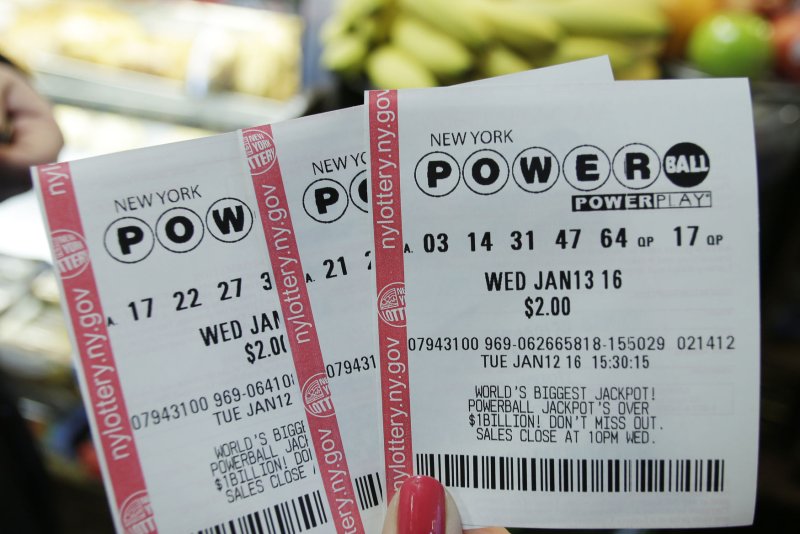Powerball lottery tickets are held at Jessie's Express Cafe with the jackpot at 1.5 billion dollars in New York City on January 12, 2016. Illinois announced June 27 that it will no longer sell Powerball and Mega Millions tickets due to a state budget crisis. File Photo by John Angelillo/UPI |
License Photo
June 29 (UPI) -- Illinois doesn't have enough money in its state budget to continue operating Powerball and Mega Millions lottery games, state authorities announced.
Sales for Powerball ended at 9 p.m. Wednesday and Mega Millions is expected to end at 9:45 p.m. Friday. The games could resume but not unil after the state solves its budget crisis.
Other lottery games will still be played, but authorities said that payments for winnings more than $25,000 could be delayed.
"Players should be confident knowing the Illinois Lottery has the money to pay these winning claims," Illinois Lottery Acting Director Greg Smith said. "That means the General Assembly needs to approve a truly balanced budget that includes lottery funding in order to ensure all prize payments will occur."
Though suspending Powerball and Mega Millions is meant to combat a budget crisis, the stoppage of the games could hurt the state's bottom line.
WGN reported that lottery games has provided $92 billion in revenue for public schools.
Retailers also could be hurt by the lottery pullback, according to Bill Fleischli with the Illinois Association of Convenience Stores, who explained that the last time Illinois suspended lottery sales, people close to a border went to retailers across state lines to buy goods, in part so they could buy lottery tickets.
"The last time [lottery sales were suspended], the border communities lost 42 percent of their lottery sales, and it took them five or six months before they ever got 90 percent of them back," Fleischli said. "[Players] don't understand [Lottery retailers] can still give up to $600 in our store, but they don't understand. They think the lottery is not going to pay them, and their ticket will be no good and they'll get into a buying habit of going someplace else."















